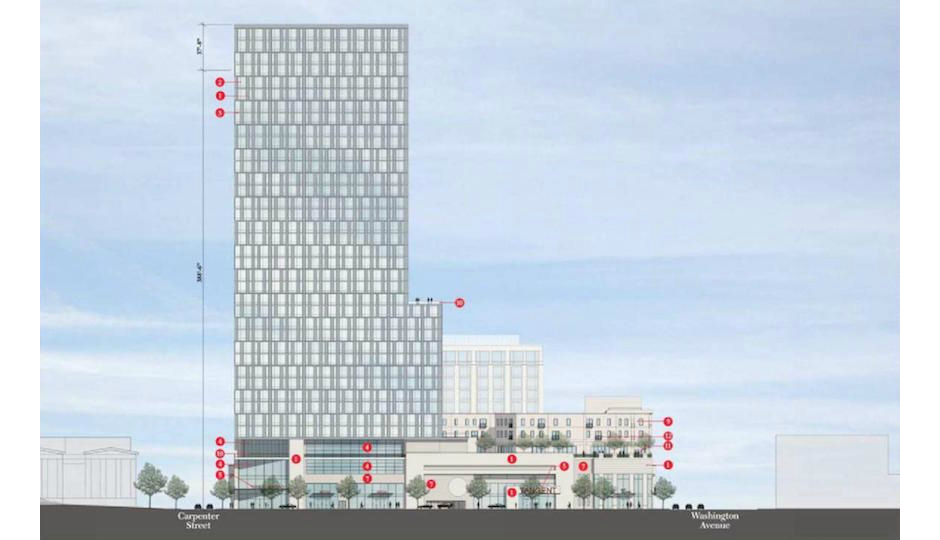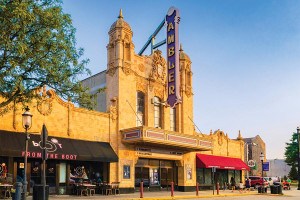Johnson Calls for Construction Moratorium at Broad & Washington

The west elevation of the revised Blatstein mixed-use project. Rendering | Cope Linder Architects
On Wednesday, the Zoning Board of Adjustment voted to approve developer Bart Blatstein’s plans for a 32-story apartment tower and rooftop retail village on a vacant lot at Broad and Washington in South Philly. Then, later, it realized it had jumped the gun by voting just one week after the zoning hearing, at which time it had said it would hold its decision for two weeks. So it vacated its vote and will presumably vote to approve the project next week.
But on Thursday, Councilman Kenyatta Johnson—who opposed the project when it went to the zoning board—introduced a bill that would put a one-year moratorium on construction of any kind on that property.
“This is a very large development project that is going to have a huge impact on the quality of life for a lot of neighbors,” Johnson said in a statement to Philly Mag. “The community is unanimously opposed to the project. It has been repeatedly criticized by planners and neighbors, near and far. The legislation introduced is intended to let the developer, and the zoning board, know that it’s time to pump the brakes and come to the table to talk to the neighbors this is directly going to impact. I understand the need for development, the community understands it too. I am not opposed to development, but there needs to be some compromise between the developer and the community on a project this large.
“The community has repeatedly expressed concern and feedback that has not been addressed and I don’t think that is fair when this project will have such a large footprint on the neighborhood. I firmly believe everyone can reach a compromise to make this a win-win project for both sides, but the developer needs to come to the table.”
Can he do that?
Representatives of the city’s Law Department weren’t immediately available to field that question. Even if they were, it might not be so cut and dry.
“It’s a very unusual ordinance,” said Peter Kelsen, a Blank Rome attorney who represents developers and who served on the city’s Zoning Code Commission.
The legality of single-property construction bans tends to be decided on case-by-case, Kelsen said. A court might rule that a moratorium serves a legitimate public purpose, or it might rule that it doesn’t, and therefore amounts to an illegal taking of private property.
The public purpose Johnson seems to be trying to serve is basically nothing more than his constituents’ seemingly strong desire to stop Blatstein from building his project there. Johnson is right that the design—including the height and siting of the tower, the amount and placement of parking, and the retail shops on the fourth-floor roof deck—has taken criticism from a broad array of neighbors, planners, and journalists.
“No comment,” was all Blatstein had to say about the proposed moratorium.


